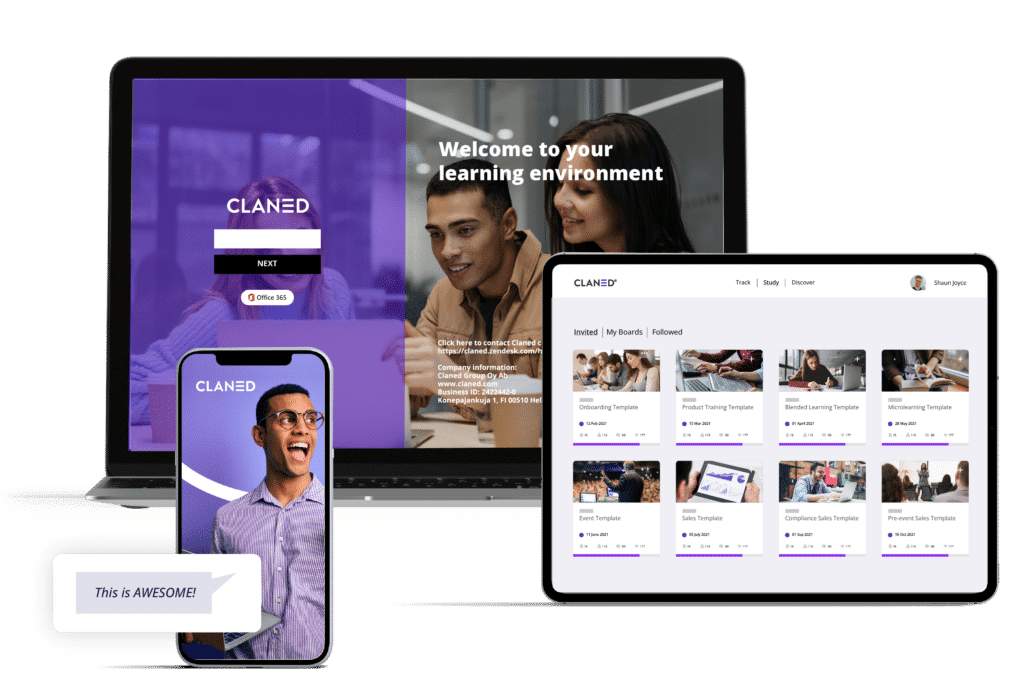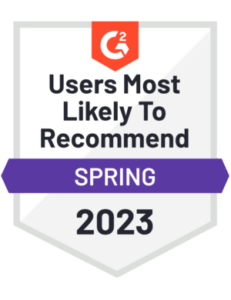In the rapidly evolving realm of education, the integration of Artificial Intelligence (AI) stands as a catalyst poised to revolutionize assessments. As the frontiers of learning expand, the way we gauge and measure knowledge and even the kinds of knowledge and understanding we value are undergoing a remarkable transformation.
AI’s entrance onto this stage promises to not only enhance the efficiency and accuracy of assessments but also redefine their very nature.
Assessments are a cornerstone of education, serving as the compass that guides both learners and facilitators on the journey of knowledge acquisition. They provide invaluable insights into learners’ progress, strengths, and areas that require further attention.
Traditionally, assessments have taken the form of exams, quizzes, and assignments, each aimed at measuring specific skills and competencies. However, as education transcends the boundaries of physical classrooms and textbooks, incorporating virtual and online spaces as both sources of knowledge and arenas for interaction, assessments stand at the precipice of a paradigm shift.
The main driver of this shift is AI—which has the power to extend the possibilities of assessment to realms previously uncharted and will force us to rethink what assessments are and how we apply them in learning.
With the potential to automate grading, personalize test pathways, and analyze data-driven insights, AI presents the opportunity of utilizing a multifaceted toolkit that enhances not only the assessment experience but also the learning process itself. The landscape of learning and education is poised for a metamorphosis, with AI’s capabilities elevating assessments from a mere evaluative tool to a dynamic conduit for learning and growth.
In the following sections, we’ll explore some of the immediate changes AI can potentially bring to assessments, delve into the realm of adaptive testing and personalization, and unpack how AI may soon redefine how we gauge learning outcomes. Moreover, as we chart this course, we’ll also address more subtle, less visible shifts that AI engenders in the assessment ecosystem.
Through it all, the significance of assessments in the learning process remains a guiding star—a reminder that as we harness the potential of AI, we must never lose sight of the true essence of education: the pursuit of knowledge, growth, and understanding.
Immediate Changes in Assessment
Traditionally, the process of grading assignments, quizzes, and tests has been a time-consuming endeavour for educators, often subject to human biases and inconsistencies. However, as AI’s become more commonplace in the realms of learning and education, the assessment landscape will and is undergoing a fundamental shift.
Automated Grading: Revolutionizing Evaluation Precision
AI’s prowess shines brightly in its ability to revolutionize grading practices through automation. What once required hours of meticulous evaluation can now be accomplished in a fraction of the time, without compromising accuracy.
AI algorithms analyze responses against predefined criteria, offering swift and precise evaluation. This not only lightens the workload for educators but also ensures that learners’ efforts are assessed objectively, free from the potential biases that human grading might inadvertently introduce.
Efficiency and Consistency: Paving the Path for Fair Evaluation
Beyond efficiency, AI-powered automated grading fosters consistency in evaluation. Assignments are assessed against the same criteria across the board, eradicating variations that can arise due to human interpretation.
This consistency ensures that learners are assessed based on objective benchmarks, contributing to a fair and standardized assessment process. Moreover, educators are liberated from the arduous task of repetitive grading, enabling them to focus on higher-level tasks that demand their expertise and insight.
Tailored Assessment Pathways: Enhancing Learning Trajectories
AI-driven adaptive tests dynamically respond to learners’ performance, tailoring the assessment experience to each individual’s proficiency level. As learners progress through the assessment, AI algorithms can adjust the difficulty of questions based on their responses.
This personalized approach ensures that learners are neither overwhelmed nor underchallenged, striking an optimal balance that encourages engagement and growth. Adaptive testing reshapes assessments into fluid experiences that adapt to the learner’s evolving understanding.
READ: The Impact of AI In Education: Embracing the Future of Learning
Adaptive Testing and Personalization
Optimizing Learning Pathways: Navigating Areas of Reinforcement
Personalized assessments extend beyond evaluation—they also serve as compasses guiding learners toward areas that need reinforcement. As AI analyzes assessment data, it identifies weak points in learners’ knowledge. Armed with this insight, AI can then recommend learning resources, exercises, or modules that specifically address these gaps.
This symbiotic collaboration between assessment and reinforcement transforms assessments into tools for continuous learning, promoting a holistic approach to knowledge acquisition. Paired with digital and online environments and resources for learning could result in highly dynamic learning experiences that not only drive learners to excellence, but also motivate and captivate by framing knowledge and concepts in ways that appeal to individual interests.
Minimizing Test Anxiety: A Customized Challenge
Test anxiety is a common hurdle in the learning journey arising from a multitude of causes and, as we begin to better understand neurodivergent, and other unique factors that affect individuals’ ability to effectively learn, we have become aware that we must invest in developing flexible systems for learning.
AI, with its adaptive prowess, addresses this challenge by calibrating the difficulty of questions to match each learner’s competence. As learners tackle assessments that are aligned with their current skill level, test anxiety is mitigated. This personalized challenge fosters a sense of accomplishment and bolsters learners’ confidence, ultimately contributing to a positive and stress-free assessment experience.
Identifying Learning Gaps: Illuminating Paths to Mastery
AI, armed with an arsenal of algorithms, can be used to dissect assessment data to uncover and identify learning gaps that might otherwise remain hidden or unaddressed.
Through meticulous analysis, AI would help to pinpoint areas of weakness, offering educators and learners a roadmap for focused improvement. This illumination transforms assessments from static evaluations into dynamic sources of guidance, ensuring that no learning opportunity goes untapped.
Informed Instruction: Shaping Educational Strategies
The insights gleaned from AI-processed assessment data become a potent toolkit for educators. Armed with a comprehensive understanding of learners’ strengths and areas requiring reinforcement, facilitators can fine-tune their instructional strategies.
Educators can leverage data-driven insights to adapt teaching methods, introduce targeted exercises, and address conceptual nuances. This fusion of technology and pedagogy elevates education into a realm where instruction is fluid and attuned to the unique needs of each learner.
Learner-Centric Approach: Empowerment through Feedback
Modern pedagogy underscores the significance of a learner-centric approach—a philosophy seamlessly augmented by AI. The role of learners shifts from passive recipients of assessments to active participants in their educational journey.
AI can help empower learners with personalized feedback, allowing them to track their progress, identify trends in their learning, and make informed decisions about their study strategies. This personalized engagement not only fosters a sense of ownership over learning but also cultivates metacognitive skills crucial for lifelong learning.
READ: 10 Important eLearning Trends 2023
The Unseen Changes: Ethical Considerations and Adaptations
While the integration of AI into education and assessment of learning brings forth remarkable advancements, it also beckons us to tread carefully through the terrain of ethical considerations and adaptative transformations.
As the assessment landscape evolves, questions emerge about how AI aligns with human values and pedagogical principles.
Bias Mitigation: Navigating the Terrain of Fairness
AI’s objectivity is a double-edged sword, demanding vigilant attention to potential biases that might inadvertently find their way into assessment outcomes. As AI algorithms learn from historical data, they have the potential to perpetuate existing biases.
Educators and technologists must collaborate to fine-tune algorithms, ensuring that assessments remain impartial and that learners are evaluated based on their merit rather than extraneous factors.
Maintaining Human Element: Balancing the Scales
While AI tools and technology have the potential to amplify assessment efficiency, it’s essential to strike a harmonious balance with the human touch. Educators bring irreplaceable qualities to the table—empathy, contextual understanding, and holistic evaluation.
AI’s objectivity needs to be complemented by human judgment, particularly in assessing complex, creative, and nuanced responses that transcend algorithmic analysis. This synergy ensures that assessments remain holistic and reflective of learners’ multifaceted capabilities.
Reevaluating Assessment Design: Marrying Tradition with Innovation
The arrival of AI in learning and education prompts educators, trainers, and course creators to reevaluate assessment design. As technology begins to re-shapes the assessment landscape, pedagogical approaches must adapt to align with AI’s capabilities.
Innovative formats, such as simulations, project-based assessments, and AI-generated challenges, emerge as possibilities. However, these innovations must be anchored in established educational principles, ensuring that assessments remain vehicles for learning and growth.
Conclusion: Elevating Education Through AI-Infused Assessments
The integration of AI technology into educational assessments brings profound changes that transcend the conventional boundaries of evaluation. In this dynamic landscape, assessments are evolving from static measures of knowledge retention to dynamic tools that help to shape personalized learning experiences.
The multitude of possibilities and considerations may still be in their infancy, and how exactly the learning and educational landscape will look a few years into the future is still uncertain. However, from the perspective of both learners and educators, there exist some “bottom line” benefits that we can see arising directly from the integration of AI tools and assessments methods within the world of learning and education.
Learners’ Experience: A Tapestry of Benefits
For learners, the integration of AI-led assessments heralds a new era of empowerment. Immediate feedback transcends traditional boundaries, enabling learners to make real-time adjustments, embrace strengths, and address weaknesses.
The reduction of test anxiety, accomplished through adaptive difficulty levels, reshapes the assessment environment into one of support and encouragement. Moreover, personalized learning pathways carve a unique educational journey for each learner, fostering a sense of ownership and mastery. With AI as a companion, learners navigate assessments not as daunting hurdles but as stepping stones toward their aspirations.
Facilitators and Course Creators: Partners in Progress
Educators and course creators prepare to enter an education renaissance empowered by AI. The insights yielded by AI-generated data offer educators a panoramic view of learners’ progress and challenges, transforming them into informed navigators of learning journeys.
Armed with these insights, facilitators can tailor instruction with precision, providing targeted support to learners where they need it the most. This partnership between AI and educators is a testimony to the power of synergy, where technology augments human expertise to craft a pedagogical experience that is agile, responsive, and profoundly learner-centric.
As we embrace this transformative tide, it’s vital to acknowledge the symbiotic relationship that emerges. AI’s prowess as a guide, enhancer, and companion in the assessment landscape is mirrored by the intuitive acumen and nuanced understanding of educators.
The journey ahead is one of continuous exploration—a voyage where the merging of human wisdom and technological precision results in an education that is both deeply rooted in tradition and unfailingly forward-thinking.







